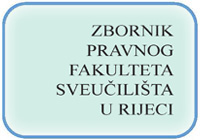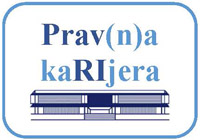List of courses in foreign languages
Civil procedure law
- Details
- Category: Integrated undergraduate/graduate university Study of Law
| Year of study | ECTS | Language 1 | Language2 |
|---|---|---|---|
| III | 8 | English |
Course coordinator
|
|
| Prof. Eduard Kunštek |
Course objectives:
Acquiring the necessary knowledge of civil procedural law, including knowledge relating to dispute settlement in arbitration proceedings and the conciliation procedure, as well as basic knowledge of non-contentious and enforcement and notary law
Course contents:
Civil Procedural Law
w: The basics of civil litigation procedural law (the notion and subject, the aim of civil litigation, the structure of civil litigation, civil procedural law, the structure of civil procedural law; the basic features, the development of various forms of legal protection, the protection of subjective civil rights, self-help, the reciprocal conditionality of civil and civil procedural law, civil law dispute, civil theory on the legal nature of the application of legal protection, the theory of concrete rights protection, the theory of the abstract right to legal protection, the right of access to court, the contemporary views on the legal protection requirement, the legal nature of litigation, the procedural preconditions, the form in the process, civil litigation procedural law; the relationship between civil procedural law and other procedural disciplines (delimitation between civil and non-procedural proceedings, basic differences between civil and non-procedural proceedings, basic non-procedural procedures, rules of conflict between civil and non-judicial proceedings, civil and enforcement proceedings); the validity of (application of) civil procedural law (principle of territoriality, international jurisdictional jurisdiction, lex fori, principle of universality, exemption from jurisdiction, derogation and extension of jurisdiction of the domestic court, mutual jurisdiction for actions against foreign nationals, party and civil capacity of foreigners, the use of language, the insurance of civil expenses and the penal justice, the mutual independence of civil and criminal justice, the constitutionality and lawfulness of the Constitutional Court, the decisions of the Constitutional Court and their legal consequences, mutual affiliation of civil and criminal justice, solving previous issues of criminal law in a civil lawsuit, adhering to civil law disputes in criminal proceedings, other adherence proceedings, separation between litigation and administrative proceedings, relationship between judicial and administrative bodies during the proceedings; legal nature of previous issues; attachment to the decision of the competent body on the previous question; self-solving of the previous question; the basics for seeking legal aid; legal assistance between domestic and other bodies; international legal aid); the principles of civil litigation procedural law (the principle of constitutionality and lawfulness, the principles of dispossession and openness, the principle of legal interest, the principle of economics, the principle of hearing parties, the principle of seeking the truth, the discourse and inquiry principle, the principle of directness, the principles of orality and literacy, the main principle of discussion, the principle of publicity, the principle of providing assistance to non-parties, the principle of conscientious use of process authorizations); litigants [regular court organization in the Republic of Croatia; basic principles of organization and functioning of regular courts; judges; composition of the court; exemption of judges; State Attorney; Attorney; competence in general; actual jurisdiction; local authority; functional competence; the agreement of the parties on jurisdiction; examination of jurisdiction; conflict of jurisdiction; parties in lawsuits; party ability; civil ability; procedural legitimacy; representation in lawsuits; representatives of legal persons; legal agents; proxies]; civil actions of the parties, litigation of the court, the language of the court and the parties, submissions, minutes, delivery, deadlines, hearings, reinstatement); types of lawsuit, declaratory lawsuit, condemnatory lawsuit, constitutive lawsuit, content of lawsuit, lawsuit against the Republic of Croatia; reinstatement of the lawsuit; withdrawal of the lawsuit; dismissal of the claim); the participation of several parties in the lawsuit; costs of proceedings (civil expenses, exemption from pre-litigation costs, civil liability insurance);;
II. court decisions (judgment in general, type of judgement, declaratory judgement, condemnation judgment, constitutive judgement, full judgement, partial judgment, adjudication, interlocutory, judgment based on confession, judgment on absenteeism, judgment on absurdity, judgment without holding the main hearing; publishing the judgement, writing the judgement, correcting the judgement, ruling); validity (content of finality, appearance of validity, objective limit of validity, subjective limit of validity, time limit of validity); legal remedies (appeals against the judgement, grounds for appeals against the judgement, appeals against the judgement, trial boundaries of the first instance judgement, appeals against decisions, revision, recurrence of proceedings, repeat proceedings against the final judgement of the European Court of Human Rights, the relationship between noncontentious legal remedies); special procedures (marital and family disputes, disputes over property bans, disputes in matters of low value, issuance of payment orders, commercial disputes).
2. Arbitration and conciliation.
3. Non-contentious procedural law (basics).
4. Enforcement law and insurance procedure (basics).
5. Notary Law (basics).
















